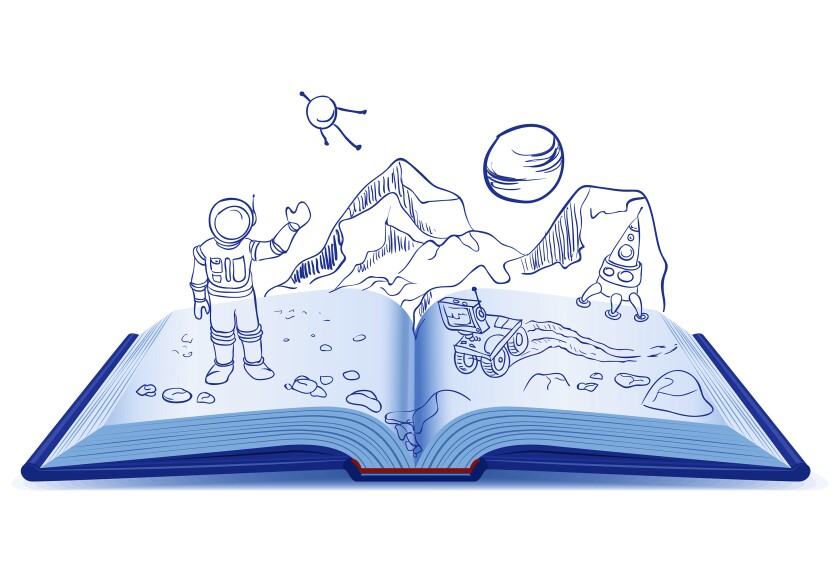Most colleges and universities require that future elementary school teachers take social studies and science classes. But a new report argues that these requirements may not be well aligned to what they’ll be teaching to their students.
In essence, it says, the programs should better guide future teachers toward courses that give them the best base of knowledge for teaching young children the basics.
The analysis, released today, comes from the National Council on Teacher Quality, a research and policy group that advocates for more rigorous teacher preparation. The organization has previously reviewed preparation requirements in other elementary subjects including early reading and math.
Reading and math, in which students are tested at the elementary level, often get the lion’s share of attention during the school day in those grades. Even so, it’s crucial that teachers have a strong foundation in science and social studies content too, said Heather Peske, the group’s president.
Kids form attitudes about STEM subjects in the early grades, so positive exposure in elementary school can have lifelong implications, she said. And elementary social studies education can help lay the groundwork for students in what it means to be an informed, active citizen.
But there’s also the potential to boost students’ literacy with strong content-area instruction.
“Learning about social studies and science content supports students’ reading comprehension,” Peske said. “Much as learning phonics helps students decipher words, we know that background knowledge helps students draw meaning from what we have read.”
For students to learn and absorb social studies and science content, teachers need to understand it well enough to teach it. But surveys show that teachers don’t feel as confident in these subjects as they do in math or reading.
The 2018 National Survey of Science and Mathematics Education found that only 42 percent of elementary teachers felt very well prepared to teach social studies and 31 percent felt the same for science, compared with 77 percent in reading and 73 percent in math.
“The field agrees that teachers can’t teach what they don’t know,” Peske said. “Teachers may not know everything they’re going to be expected to teach when they set foot in the classroom, but they will be more effective on day one if they come from teacher-preparation programs that have given them the background knowledge to teach science and social studies.”
NCTQ urges more targeted course recommendations
The NCTQ reviewed state content standards, elementary content exams, and licensure tests to determine essential topics and themes that most teachers would cover in social studies and science—like the American Revolution and the nation’s founding, or the structure and properties of matter. The group also consulted with an expert advisory panel.
Then, researchers examined the course requirements for 437 undergraduate elementary preparation programs.
They found that most teacher-preparation programs at these institutions required students to take several courses in these broad subject areas. The average was four science courses and six social studies courses.
And most institutions of higher education offered courses that covered the specific topics and themes that the NCTQ identified—a course on the American Revolution, for example.
But usually, it was up to teacher candidates to decide which courses to take to fulfill the broad social studies and science requirements. To continue with the American Revolution example: 95 percent of institutions the NCTQ examined offered a course that covered the topic. But only 37 percent required that course specifically for teacher candidates. (For a full list of topics and course requirements, see the report here.)
Students at the other institutions could choose to take that course on the American Revolution, which would line up well with what they’d then be teaching to their own students. Or, they could choose instead to take a class on a different social studies topic, such as the history of sports in the United States. That might overlap with some areas of elementary content standards, but it wouldn’t be as closely aligned as the American Revolution course.
The organization recommends that programs provide more specific recommendations for teacher candidates about what courses they can take that will both meet program requirements and prepare them with the content knowledge they need to teach their own students.
“We’re not asking universities to develop a whole new set of courses,” Peske said. “Programs are missing a major opportunity to require aspiring elementary teachers to take the right courses.”
College courses may cover different content and skills than an elementary teacher would need in their knowledge base. “A college course on economic principles and exchanges—that may well have much more robust content than you would be teaching 4th graders,” Peske said.
That’s where the teacher-preparation program can do some deeper investigation, she said, working with faculty across other departments to understand which courses make sense to recommend to candidates and which wouldn’t be as relevant.
“It’s the responsibility of the program to offer guidance,” Peske said.







